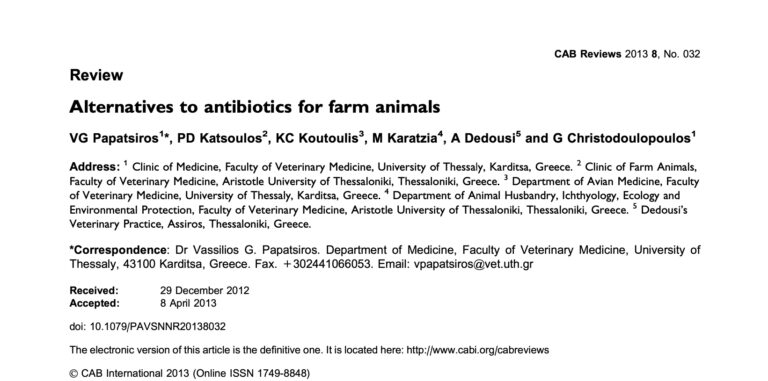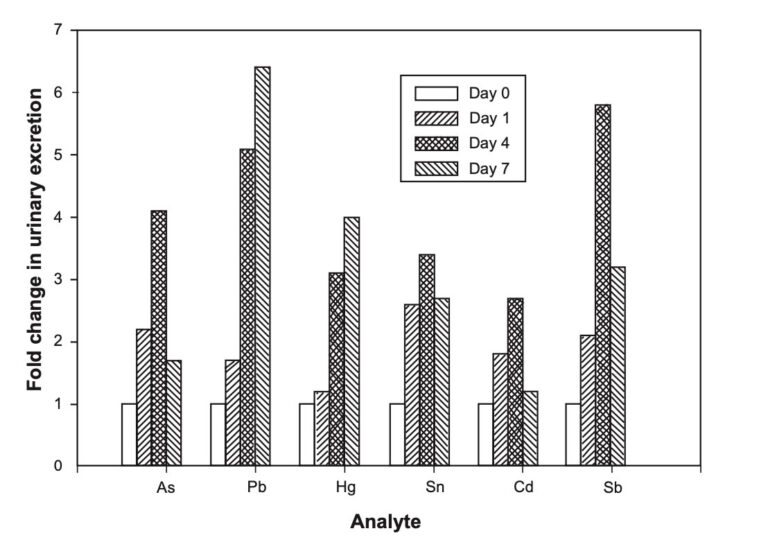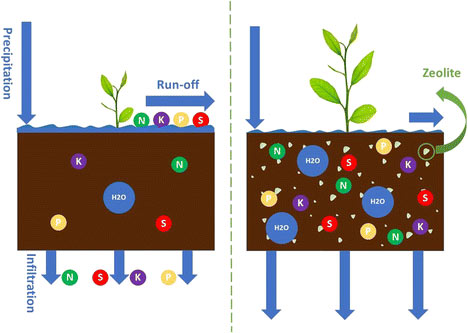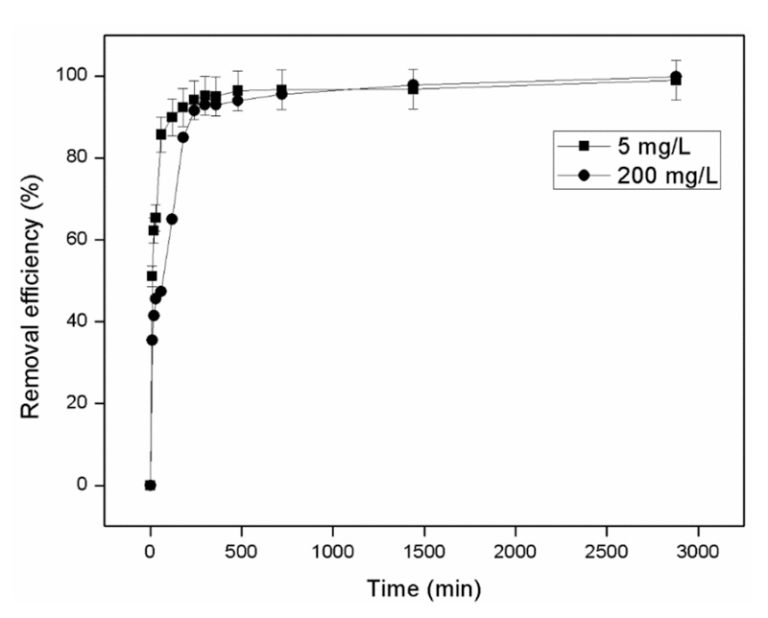Zeolite is a natural, inert, clay-silicate rock, which generally cleans and manages the environment in which it is found.
Zeolite has a unique combination of properties that make it a special material, which is used in a wide range of applications.
- Its structure consists of countless holes (openings) at the micromolecular level.
- It is hydrophilic, i.e. it can absorb and eliminate water up to 60% of its weight.
- It has a high ion exchange capacity and can bind elements and compounds of large molecular structure.
It could also be described as a filter or a molecular sponge.
Zeolite, where can it be found?
zeolite is found naturally as an aluminosilicate salt and is of volcanic origin. To date, more than 45 species of natural zeolites have been identified and described. It is a soft rock and usually the only treatment it undergoes is crushing. In Greece it is found mainly in the Thrace region, in particular in the prefecture of Evros and the prefecture of Rodopi.
Its name comes from the Swedish mineralogist and chemist Axel Cronstedt, who in 1756 was the first to observe that heating the mineral produces bubbles on its surface and water vapour. So using the word ‘zeo’, which in ancient Greek means ‘to boil’, and the word ‘lithos’, which means ‘stone’, he named this material zeolite.
Zeolite, where is it used?
Due to its unique properties, zeolite is used in a wide range of applications such as human health, environmental cleaning, sustainable agriculture, organic livestock and fish farming, the household appliance industry and the hydrocarbon industry.
Zeolite in human health
Zeolite in humans, is mainly used in detoxification of the body, through eating it, binding all “foreign” elements, starting from heavy metals, toxins and free radicals. At the same time it balances histamine levels, which results in the direct regulation of human physiology. It is then suspended along with the bound elements, through the digestive system. [1]
In a clinical trial, in which 33 volunteers consumed zeolite for 7 days, it was shown that participants had increased concentrations of heavy metals in urine with peak excretion on about day 4. In conclusion, the study demonstrated that daily use of activated clinoptilolite zeolite is a potentially safe and effective way of removing toxic heavy metals from the body without removing clinically harmful amounts of vital electrolytes. [2]
Zeolite as a medium to relieve the symptoms of chemotherapy
In a study of the effects of zeolite in humans undergoing immunological cancer treatment, it was shown that male patients had lower chemotherapy-induced peripheral neuropathy (CIPN) compared to patients receiving placebo. In addition, supplementation with zeolite led to a lower incidence of severe hematological toxicity. These benefits led to better tolerance to chemotherapy (increased cycles) and allowed for improved compliance with the oncology treatment protocol. [3]
Zeolite as a medium for the management of Histamine
In a 2018 paper, it was shown for the first time that the mineral composition of natural zeolites and their particle size play a key role in the binding of histamine, which is one of the most important regulators of human physiology. [4]
Zeolite and the improvement in bowel permeability
According to a clinical trial in 52 aerobic gymnasts, zolite produced beneficial effects on the integrity of the intestinal wall. This was accompanied by mild anti-inflammatory effects. In a condition called leaky gut syndrome, toxins, microbes and inflammatory molecules can enter the bloodstream from the gut causing inflammation in the body. Zeolites are crystalline compounds with microporous silicon (Si) tetrahedral structures. In the intestine, these silicate compounds can act as adsorbents, ion exchangers, catalysts and antidiarrhoeal agents. In the present study, was evaluated whether supplementation with zeolite, affects the biomarkers of intestinal wall permeability and parameters of oxidation and inflammation, in aerobically trained subjects and whether it could improve their performance. [5]
Read more about zeolite in human health at this link on our website.
Zeolite in Livestock
Zeolite in animal feed
In exactly the same way that zeolite affects the human body, it also affects animals. Zeolite is primarily used in animal husbandry as a nutritional supplement that cleanses the animal’s body of toxins, heavy metals and free radicals. This contributes to their good health and also increases the quality of the products produced, such as meat, milk and eggs. [6]
The European Union, in accordance with Directive 70/524/EEC (Commission Regulation (EC) No 1810/2005), has officially authorised the use of clinoptilolite of sedimentary origin as a binding and anti-caking additive in feedingstuffs for poultry, cattle, pigs and salmon. [7]
In a 2016 study, it was shown that the dietary administration of clinoptilolith, in powder form, at a rate of 200 grams per cow per day can effectively reduce the concentration of aflatoxin AFM1 in the milk of dairy cows. At the same time it can be used as a preventive measure to improve the risks associated with the presence of aflatoxins in milk, which can cause poisoning in humans. [8]
In a study with chickens, zeolite was shown to be able to absorb ochratoxin A. [9]
In 2012, a study on the dietary inclusion of urea-soaked zeolite as a slow-release urea (SRU) agent was conducted to reveal its effect on ruminal fermentation characteristics in lambs. It was shown that zeolite is capable of reducing ammonia in myricase, pH, acetate to propionate ratio, methane and maintaining low plasma urea within the normal range. [10]
Zeolite in the animal habitat
Along with nutrition, zeolite is also used in the living area of animals as an excellent environmental regulator, managing moisture and absorbing unpleasant odours.
Laboratory studies have verified that the addition of clinoptilolite to a mixture of fresh pig and cattle manure, respectively, provides an effective means of trapping ammonia nitrogen during composting and thus reducing ammonia emissions. Given the high adsorption of ammonium and ammonia from zeolite, some researchers have focused their studies on evaluating the effect of dietary zeolite use on environmental stressors, such as aerial ammonia, which are recognized to contribute to persistent health problems under intensive farming conditions. It was shown that the use of zeolite in a basal diet of finishing pigs at 5% incorporation rate had a favourable deodorization effect and a 28.5% reduction in aerial ammonia concentration. In addition, studies on growing pigs found the effectiveness of the same dietary regimen in reducing nitrogen and ammonia emission by 21% [6]
A Greek study in 2015 observed that the addition of clinoptilolith in cow feed could mitigate the effects of nitrate on protein metabolism and glucose utilisation. Nitrates are taken up by prolonged water consumption with increased levels of them. [11]
Zeolite in agriculture
Zeolite in agriculture is mainly applied by incorporating it into the soil. It acts as an excellent environmental manager (molecular sponge) and at the same time as an excellent filter. It binds water and nutrients and delivers them directly to the root system. This has the effect of increasing production and at the same time improving the quality characteristics of the products produced.
Zeolite as a medium to improve soil moisture
In a 2017 paper, in soils enriched with zeolite, the water infiltration rate was significantly improved. In sandy soil, water retention increased by up to 20%. The index of saturated hydraulic conductivity (Ks) and water holding capacity (WHC) also improved. At the same time, the addition of zeolite significantly improved the cation exchange capacity (CEC) of the soil. In the same thesis it was shown that natural zeolite can also effectively retain water and its nutrients, such as ammonia (NH4+) and nitrate (NO3-). It also retains phosphate (PO43-), potassium (K+) and sulphate (SO42-) in the same way, in its unique porous structures. In the same paper, the difference in retention of ammonia and nitrate is significant, reaching 82 and 36% respectively from the very first year. The benefits therefore seem to be very significant as zeolite can bring significant results in crop growth as well as in fertilizer and water savings. [12]
Enriched zeolite as fertiliser in agriculture
In a recent study of the University of Patras, enriched zeolite was used in wheat culture, after the treatment of secondary whey of cheese. It was shown that the application of this enriched zeolite significantly affected the growth of wheat plants. Its application resulted in faster growth and higher biomass production. [13]
Zeolite as a medium of nutrient retention in agriculture
A study in Malaysia investigated nitrate leaching and soil Nitrogen availability after zeolite and urea application. The crop in which the experiment was conducted was that of maize (Zea mays L). In all cases of zeolite addition, it appears that the release of ammonium and nitrate from urea was significantly reduced. Zeolite increased the retention of total soil nitrogen and exchangeable ammonium. It also increased the percentage of available nitrate due to its high cation exchange capacity. It thus improved the availability of nitrogen through temporary retention at its exchange sites. [14]
Zeolite in aquaculture
The use of zeolite in fish farming has proven to be equally important and has yielded significant results.
In an experimental study where activated carbon was compared to zeolite, a significant reduction of total ammonia (NH4+) in water was observed during its use. Many varieties of farmed fish are highly sensitive to small fluctuations in factors such as water temperature, pH, oxygen and ammonia (NH4+), as well as chemical and biological changes in the water. The environments of aquaculture systems must be carefully maintained within narrow limits to remain healthy. [15]
Unpublished tests conducted in 1973 at a laboratory trout hatchery near Newport, Oregon, showed that 97 to 99% of the NH4+ ammonia produced in a closed recirculation system was leached from zeolite. In a later study, Peters and Bose in 1975 documented these results and also found that trout remained healthy during a 4-week trial when zeolite was used to regulate the ammonia (NH4+) content of the tank water. [16]
Read more about zeolite in aquaculture at this link on our website.
Zeolite in cleaning up the environment
The unique composition of the mineral zeolite provides it with important physical and chemical properties. As a result, new applications for its use are constantly being developed. It is now one of the most useful minerals in environmental cleaning. The “molecular sieve” zeolite, locks in positive ions, absorbing a multitude of environmental pollutants amounting to up to 30% of its weight. In this way, zeolite contributes to a cleaner and safer environment in countless ways.
Zeolite as an oxygen enrichment medium
In Japan, many systems for enriching the atmosphere with oxygen have been developed since the 1970s. This is because zeolite has the selective ability to absorb nitrogen. Similar structures have been built by other companies and are used for the aeration of fish farms and for the transport of live fish. [16]
Zeolite as a medium of waste treatment
In a postgraduate thesis at the University of Athens, Kallo D.’s study from 1995 is mentioned, in which it is shown that the addition of clinoptilolite to waste leads to the creation of sludge, which can be easily dehydrated and used as fertilizer. [17]
The same postgraduate thesis reports the work of Liberti L. et al. (1995) who describe a process for the isolation of useful ammonium and phosphorus ions (RIM-NUT) from noxious wastes using selective exchange via zeolite in combination with organic resin. [17]
Zeolite as a water purification agent
In the late 1970s, in Denver, United States, 1 billion gallons of water (wastewater) per day was being reused as potable water after treatment with clinoptilolite. After treatment, the ammonia (NH4+)m content of the sewage sludge reached levels below the upper permissible limits for drinking water (1 ppm). The purification of industrial waste using zeolite has yielded impressive results. This led to the creation of clean water and cohesive zeolite sludge.[17]
It is already used in Greece in many applications such as in the biological treatment of the Municipality of Lagada and in the cleaning of the garbage trucks of the Municipality of Neapolis-Sikeon in Thessaloniki.
Read more about zeolite in environmental cleaning at this link on our website.
Household use of zeolite
Natural zeolite is 100% ecological and is widely used in gardening and ecological farming. It is applied in pots and planters, in vegetable gardens, lawns, arbors and trees. It acts as a molecular filter and manages the soil nutrients and water by balancing the pH. At the same time it cleanses the soil of heavy metals, toxins and free radicals. This increases the production and quality of the products produced. The results are permanent as the zeolite does not degrade, does not decompose and does not change its composition.
Zeolite in detergents and cleaners
Due to its absorbent structure, in recent years in Greece it is also used in the production of detergents and cleaners. There is now a wide range of cleaning products for both domestic and industrial use. You can see here all the cleaning products with zeolite.
Zeolite in drinking water filters
Technology is changing and constantly evolving to meet the everyday needs of humanity. One of these needs is clean drinking water. The water treatment industry is constantly researching, testing and developing new and improved methods to treat wastewater and drinking water that are efficient and environmentally friendly. Zeolite water filters can be a sustainable, natural solution for the treatment of drinking water, wastewater and sewage. You can see all of our zeolite drinking water purification filters here.
Zeolite in construction materials
Zeolite is also very popular in the building materials industry. Recently, a major company in the field has created plasterboard based on zeolite. This material is perforated, cleaning the air as it passes through the peerforations. This removes unpleasant pollutants, leaving the air cleaner. This unique technology is at the heart of all acoustic perforated gypsum products.
Zeolite in home appliances
For many years natural zeolite has been used by large companies specializing in filtering and purifying indoor air. This is carried out by devices on the market called ionizers-air purifiers, which use natural zeolite as the main filter.
Zeolite has the ability to cause a noticeable reduction of odour in a room in a short period of time. It also ensures that it absorbs and inactivates viruses, fungi, bacteria and allergens that are suspended in our space. This is what modern air ionizers do.
The household appliance industry also benefits from the use of natural zeolite. In particular, many companies have manufactured dishwashers with natural zeolite resulting in energy savings of up to 60%. Zeolite is a natural mineral that has the ability to absorb moisture thanks to its special surface and convert it into thermal energy. The mineral then releases this energy, drying dishes quickly and efficiently. In this way, energy consumption is reduced to a minimum.
Also, dehumidifiers with corresponding zeolite technology are now widely used.
Zeolite in the hydrocarbon industry
The two main uses of molecular sieves in industry are the purification of hydrocarbon gases and the preparation of catalysts for petroleum refining. In general, natural zeolites have made progress in drying and purifying acid gases. Zeolite basically acts as a filter for many applications. At the same time, its properties also allow it to function as a catalytic element, as demonstrated by petrochemistry. Zeolite at high temperatures and pressures is capable of converting oil into gasoline. Previously, while this phenomenon was known at a practical level, it was not fully understood at a molecular level.
Researcher Jean Sommer and his team have succeeded in showing at the molecular level the catalysis caused by zeolite, which converts oil into high-octane gasoline. The modification of the surface of clinoptilolite with quaternary amine chains allows the adsorption of benzene, toluene and xylene in the presence of water, a promising process for the purification of petrol and other petroleum products [18]
These hydrophilic products can be further treated with additional amines to produce anion exchangers capable of adsorbing chromium, arsenic, sulphur and other metallic oxy-anions from aqueous solutions. [19]
References
- [1] Medical applications of zeolites, Kresimir Pavelic and Mirko Hadzija
- [2] Clinical evidence supporting the use of anactivated clinoptilolite suspension as an agent toincrease urinary excretion of toxic heavy metals
- [3] ZeOxaNMulti Trial: A Randomized, Double-Blinded, Placebo-Controlled Trial of Oral PMA-zeolite to prevent Chemotherapy-Induced Side Effects, in particular, Peripheral Neuropathy
- [4] Histamine-binding capacities of different natural zeolites: a comparative study
- [5] Effects of zeolite supplementation on parameters of intestinal barrier integrity, inflammation, redoxbiology and performance in aerobically trained subjects
- [6] The role of natural and synthetic zeolites as feed additives on the prevention and/or the treatment of certain farm animal diseases: A review
- [7] EXECUTIVE REGULATION (EU) No 651/2013 OF THE COMMISSION OF THE EUROPEAN UNION
- [8] In-field evaluation of clinoptilolite feeding efficacy on the reduction of milk aflatoxin M1 concentration in dairy cattle
- [9] In vitro and in vivo protective effects of three mycotoxin adsorbents against ochratoxin A in broiler chickens
- [10] Zeolite improves myricase characteristics of lambs
- [11] Effects of prolonged consumption of water with elevated nitrate levels on certain metabolic parameters of dairy cattle and use of clinoptilolite for their amelioration
- [12] Zeolite and nutrient and water conservation
- [13] Zeolith in wheat after secondary whey treatment of cheese.
- [14] Zeolite and urea = more nitrogen in the soil + increased production
- [15] In vitro comparison of zeolite (clinoptilololithos) and activated carbon as ammonia sorbents in aquaculture
- [16] The application of natural zeolites in animal science and aquaculture
- [17] Use of zeolite to capture and remove toxic substances from the environment and the human body. Master’s thesis
- [18] Proceedings of the 45th Industrial Waste Conference May 1990, Purdue University
- [19] Sorption of chromate and other inorganic anions by organo-zeolite
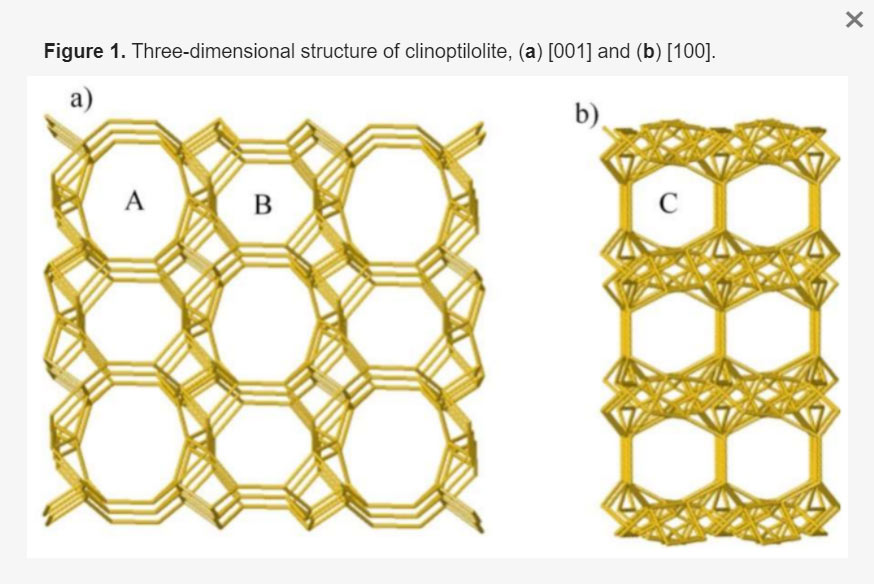
![Silver Zeolite Composites-Based LEDs: A Novel Solid-State Lighting Approach [Thesis]](https://zeolife.gr/wp-content/uploads/2017/03/silver-zeolite-leds-256px.jpg)
